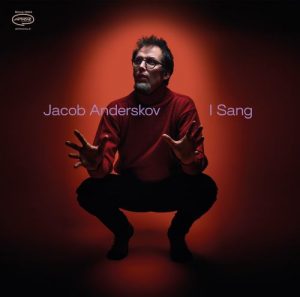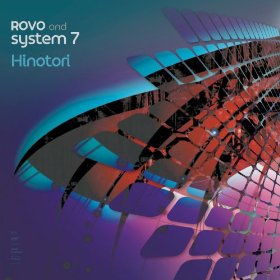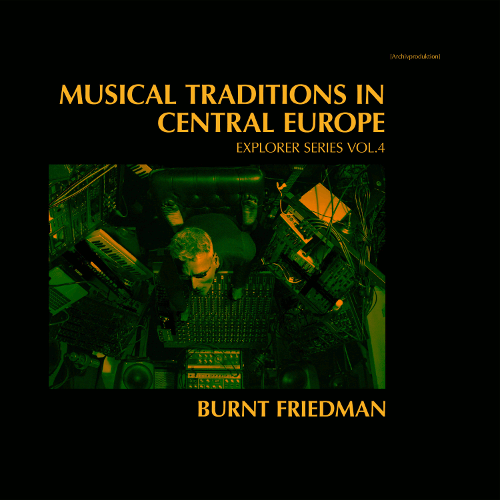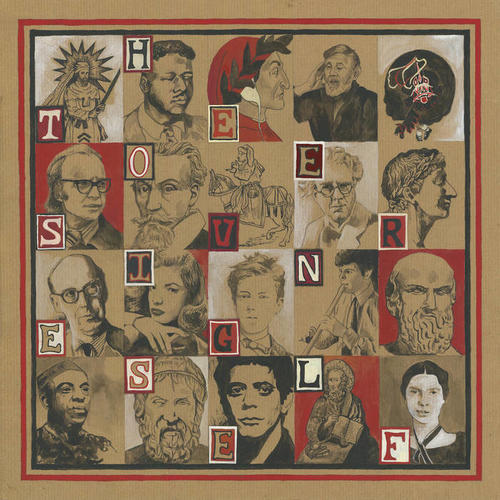 Danish pianist Jacob Anderskov has many albums and collaborations under his belt; but on his latest, he has chosen, along with a small group of friends, to shine a light on an under-appreciated art form, that of højskolesangbogen.
Danish pianist Jacob Anderskov has many albums and collaborations under his belt; but on his latest, he has chosen, along with a small group of friends, to shine a light on an under-appreciated art form, that of højskolesangbogen.
This is a form of nineteenth century folk music, incorporating hymns and singalongs that is very much part of Danish cultural identity. As with a lot of these forms of northern European folk music, they are tied to a certain time and Jacob has chosen this album to drag it into the twenty-first century, taking a detour through some twentieth century jazz motifs.
Ten pieces have been selected, half of which are instrumental and with the assistance of Kasper Tranberg on trumpet, percussionist Jakob Høyer and vocalists Soffie Viemose and Jakob Munck, they reinvent these much-loved standards, stretching them into new shapes, holding them against a mirror and enjoying the new reflection that shines back. Kasper’s trumpet is a smoky, noir-ish delight, all Humphrey Bogart shadows, moody and desolate, while Jakob Høyer’s drums are so precise and vibrant the snares crack with force as Jacob’s intense piano is a spring rain patter; and this is all in the opening track.The recording is crisp and clear and the variation of images is lovely. On “Du Danske Commer, Jeg Elsker Dig”, Soffie’s voice is a heartfelt ache full of yearning while the piano ripples discordantly. There is something unsettling in the use of the minor keys, while Jakob’s voice comes on like a lower register Tom Waits and the songs in which he appears have that low key piano / trumpet combination that finds the shades lowered and the customers gazing thoughtfully into the dusty spaces.
Voices come together sounding subdued, standing around a brazier giving one last chorus before the cold becomes too much and in the dim light, although the lyrics are impenetrable, the sentiments make their way through. The percussive snapping of twigs and cracking of ice emphasise the melancholy piano cycles as they drift onward. The asthmatic trumpet on “Se Det Summer, Af Sol Over Engen” has the notes squeezed from it like the last drops of toothpaste. These experimental sections put a whole other perspective on what could in the wrong hands be staid re-runs, and the trumpet heading for uncharted territory accompanies a voice that rings with purity. I wonder what the people of Denmark will make of these renditions that clearly hold the originals dear, but feel the urge of the avant-garde.Jakob Munck’s dark voice gives the impression of smoky beer halls, dense crowds around the piano, hanging on every stentorian word. It is the embodiment of those who would have been singing these songs for the last 150 years; but here, the opportunity to venture into new lands is too much to resist with lullaby trumpet and capricious piano stepping gently together.
All in all, I Sang is an impressive document, with simple, adventurous piano solos, hymnal gravity injected with off-piste accompaniment to the final outing of drumless intrigue, a second outing for the opening piece that ends the album on a soothing note. As a non-Danish speaker and someone ignorant of some of their musical culture, this is a real eye-opener. Whether Jacob intends to continue in this vein or if this is just an experiment to see how it would go, we will find out; but it is well worth investigation and a work of which to be proud.-Mr Olivetti-



